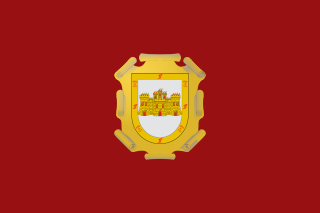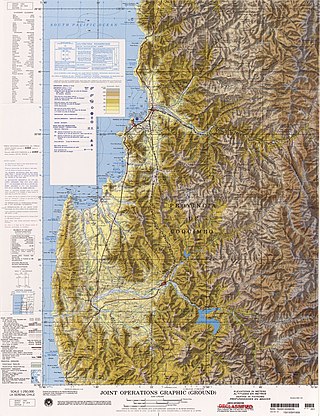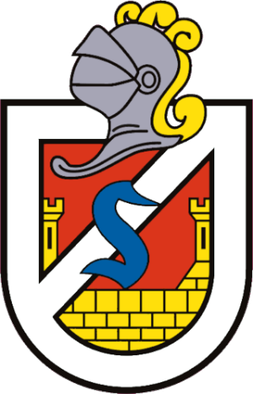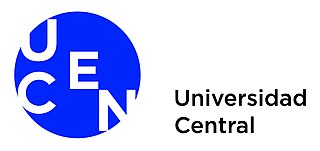
The Coquimbo Region is one of Chile's 16 regions. It is bordered by Atacama to the north, Valparaíso to the south, Argentina to the east, and the Pacific Ocean to the west. It is approximately 400 kilometres (250 mi) north of the national capital, Santiago.

The University of Santiago, Chile (Usach) is one of the oldest public universities in Chile. The institution was born as Escuela de Artes y Oficios in 1849 by Ignacy Domeyko, under the government of Manuel Bulnes. It became Universidad Técnica del Estado in 1947, with various campuses throughout the country. In 1981, as a consequence of a reform on higher education under the dictatorship of Augusto Pinochet, it became what is now known as Universidad de Santiago de Chile, with all activities centered in a single 340,000 m2 campus in the capital Santiago.

La Serena is a city and commune in northern Chile, capital of the Coquimbo Region. Founded in 1544, it is the country's second oldest city after the national capital, Santiago. As of 2012, it had a communal population of roughly 200,000, and was one of the fastest-growing areas of Chile.

Ovalle is a city in the Coquimbo Region of Chile, founded in 1831 as a settlement. It has a population of more than 113,000 people. The name Ovalle was chosen to honor to Chile's vice-president, José Tomás Ovalle. Ovalle is the capital of the Limarí Province.

Catholic University of the North is a university in Chile. It is part of the Chilean Traditional Universities. It is located in Antofagasta, Chile. The Catholic University of the North was founded on May 31, 1956.

The University of Talca is a Chilean university located in the cities of Talca, Curicó, Linares, Santa Cruz and Santiago. Its headquarters and largest campus are located in the city of Talca. It is part of the Chilean Traditional Universities, the Consortium of State Universities and the Group of Regional Universities of Chile.

Coquimbo is a port city, commune and capital of the Elqui Province, located on the Pan-American Highway, in the Coquimbo Region of Chile. Coquimbo is situated in a valley 10 km (6 mi) south of La Serena, with which it forms Greater La Serena with more than 400,000 inhabitants. The commune spans an area around the harbor of 1,429.3 km2 (552 sq mi). The average temperature in the city lies around 14 °C (57 °F), and precipitation is low.

Tongoy is a Chilean coastal town in the commune of Coquimbo in Elqui Province, Coquimbo Region. It is located 42 km (26 mi) to the south of Chile's second oldest city, La Serena, next to Guanaqueros beach, on a rocky promontory opposite the Pacific Ocean, between the beaches of Socos (4 km) and Grande (26 km), to the north of the Talinay Mountain range.

Club de Deportes La Serena S.A.D.P., is a Chilean football club based in the city of La Serena, Coquimbo Region. The club was founded 9 December 1955 and plays in the first division of the Chilean football league. Their home games are played at the La Portada stadium, which has a capacity of 17,194 seats. Their biggest rival is Coquimbo Unido. They are nicknamed "Los Papayeros", because of the papayas that are grown near La Serena in the Elqui Valley.
Ricardo Francisco Rojas Trujillo is a Chilean football manager and former footballer who played as a centre-back.

Gustavo Rubén Lorenzetti Espinosa is an Argentine-Chilean professional footballer, who plays as an attacking midfielder for Chilean Primera División club Deportes Iquique.

In 2011, Chile was home to 42% of the world's astronomical infrastructure, consisting principally of telescopes. In 2015, it was estimated that Chile would contain more than 50% of the global astronomical infrastructure by 2030. In the Atacama desert region of northern Chile, the skies are exceptionally clear and dry for more than 300 days of the year. These conditions have attracted the world's scientific community to develop highly ambitious astronomical projects in the Atacama desert.

Telenorte is a Chilean Television brand, launched as a TV network in 1966, closed in 2001 and relaunched through streaming since the 2010s. The network had stations in Arica, Iquique, Antofagasta and La Serena.

The Central University of Chile (UCEN) (Spanish: Universidad Central de Chile) is the first autonomous private university in Chile, founded in 1982 in Santiago de Chile. It's accredited in the areas of institutional management and undergraduate teaching by the National Accreditation Commission of Chile for a term of four years from December 2017 to December 2021.
Eduardo Hernán Gómez Cortez, known as Eduardo Gómez, is a former Chilean footballer who played for clubs of Chile. He played as a defender.

The 2018 Copa América Femenina was the eighth edition of the CONMEBOL Copa América Femenina, the quadrennial international football competition for women's national teams in South America affiliated with CONMEBOL. The tournament was played between 4 and 22 April 2018 in Chile.
The 2018 Copa Chile, was the 39th edition of the Copa Chile, the country's national football cup tournament. Santiago Wanderers were the defending champions, but lost to Palestino in the second round of the competition. Palestino went on to become champions after defeating Audax Italiano in the final by an aggregate score of 4–2.
The 2021 Copa Chile, was the 41st edition of the Copa Chile, the country's national football cup tournament. The tournament began on 15 June 2021 during the mid-season break due to the 2021 Copa América and ended on 4 September 2021, with the final match on neutral ground. Colo-Colo were able to defend the title won in the previous edition of the competition, winning their thirteenth Copa Chile after beating Everton in the final by a 2–0 score.
The 2019 Club Deportivo Universidad Católica season is the 79th season and the club's 45st consecutive season in the top flight of Chilean football. In addition to the domestic league, Universidad Católica are participating in this season's editions of the Copa Chile, the Supercopa de Chile, the Copa Libertadores and the Copa Sudamericana
The 2022 Copa Chile, was the 42nd edition of the Copa Chile, the country's national football cup tournament. The tournament began on 19 March 2022 and ended on 13 November 2022, with the final match on neutral ground.
















